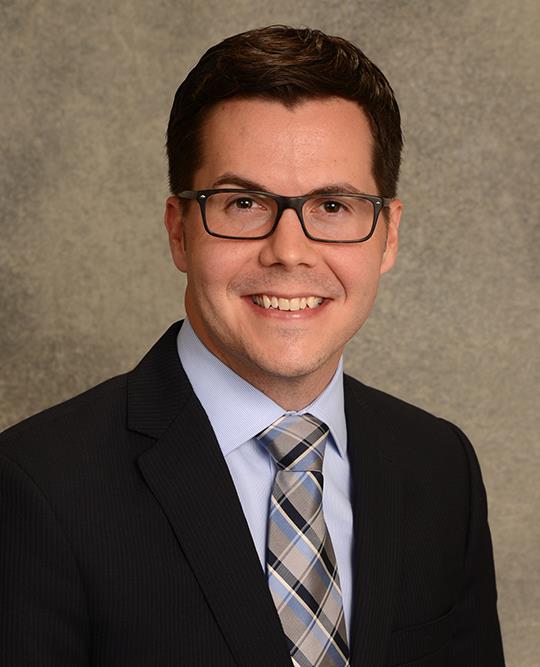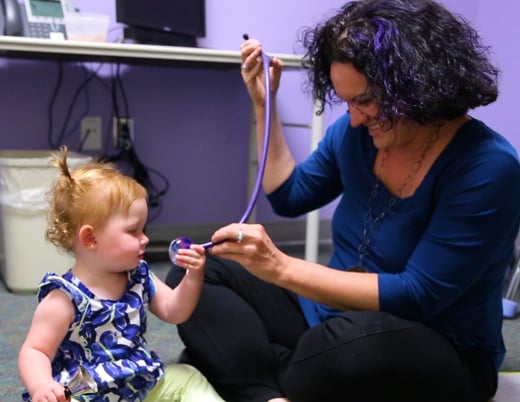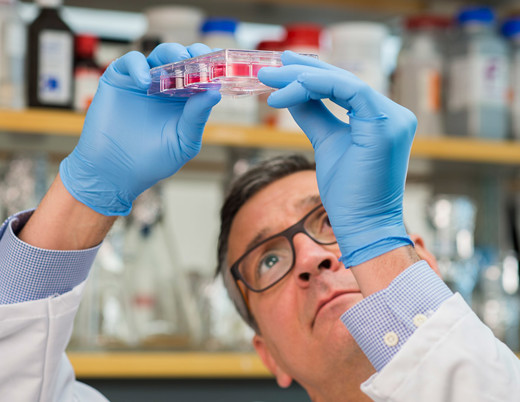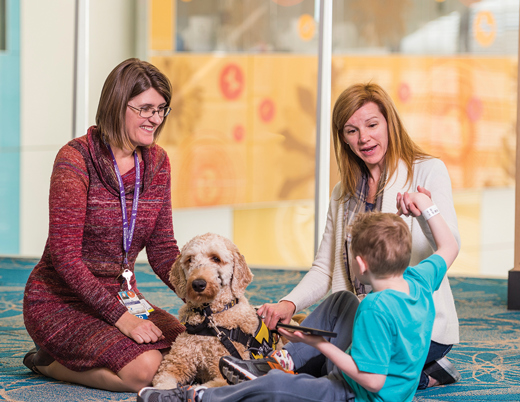How are the pediatric immunology researchers at Children's Hospital Colorado accelerating discovery for patients with extremely rare, complex conditions to promote international collaboration and care across the lifespan?
For the past decade, Elena Hsieh, MD, Cullen Dutmer, MD, and the immunology team at Children’s Hospital Colorado have been building a center of excellence to identify genetic abnormalities that lead to immunologic diseases, known as inborn errors of immunity. The team is treating and studying these extremely rare pediatric diseases — even ones affecting just a single patient worldwide — to build a deeper understanding of the immune system. By identifying the root of the problem, doctors are able to apply these findings to impact more common diseases as well.
Breakthroughs in pediatric immunology research
For doctors at Children’s Colorado, the rare is common — and this is especially true for the immunology team.
“By studying rare immune diseases, we actually can apply knowledge that enlightens a very unique rare disease to benefit a group of disorders that, at the symptom level, manifest similarly,” Dr. Hsieh says.
The work of the immunology team involves precision medicine, case-by-case research and treatment discoveries. Dr. Hsieh says they are able to go from novel discoveries to influencing patient outcomes in a matter of two to three years, when traditionally this research process could take up to a decade. The team does this by starting with the “guilty” mutated gene and understanding how it impacts the immune system by performing a multitude of research assays on the patient’s cells, cell lines derived from patients and animal models.
Dr. Hsieh shares the example of a patient she might see with a particular gene defect, which maybe only five people in the entire world have. The patient may have a cytomegalovirus infection, but also an aggressive form of inflammatory bowel disease. Through studying that specific, “guilty” gene, she now understands how that gene plays an important role in overall gut health. Now, she can target different therapies to that specific gene that could improve gut health overall and help a larger group of kids.
“It is really about adapting that discovery to a whole bucket of diseases,” Dr. Hsieh explains. “We can help develop therapies in that arena because now we just have a new target. It’s this concept of going from rare to common and how we see pediatric immunology research being important.”
Children’s Colorado now has one of the largest pediatric immunology groups in the country, allowing for a wider breadth of expertise to care for patients. Drs. Hsieh and Dutmer are joined by Pia Hauk, MD, and Jordan Abbott, MD, to make up the immunology team in the Allergy and Immunology Center at Children’s Colorado. The group was also recently recognized by the Federation of Clinical Immunology Studies (FOCIS) as an official center of excellence for advancing multidisciplinary scientific and clinical innovations. In addition to patient care and advancing discovery through research, education is a top priority of the immunology team. Drs. Hsieh and Dutmer have increased the integration of immunology into the curriculum at the University of Colorado School of Medicine on the Anschutz Medical Campus.
Neonatal screening
The specialty expertise of Drs. Hsieh, Dutmer and their team is not just benefiting the patients they treat at Children’s Colorado, but also babies born throughout Colorado and Wyoming. The immunology team manages the newborn screening program for severe combined immunodeficiency — a life-threatening disease that can be cured by bone marrow transplant. Through this screening, they not only identify patients with severe combined immunodeficiency, but also another rare disease called congenital athymia, where a child is born without a thymus, an essential organ of the immune system. Without proper treatment, the life expectancy of kids with congenital athymia is typically only two years.
Through newborn screening, the team has identified children with congenital athymia since 2017, but cultured thymus tissue implantations were not approved yet by the Food and Drug Administration (FDA). Drs. Hsieh and Dutmer worked on research papers to collect data, showcase the severity of the disease, communicate the economic implications and advocate for a treatment to be approved.
In 2021, the FDA approved the first thymus tissue product, and Dr. Dutmer is responsible for treating two of the first 10 patients in the country with this treatment.
Multigenerational care and interdisciplinary collaboration
This specialized, rare disease research is not just limited to children. Because these extremely rare conditions can often be genetic, sometimes the discovery of a condition in a child can lead to identifying other family members with the same condition. For Dr. Dutmer, this means seeing and treating multiple generations of a family who all have the same disease.
“There are scenarios where I take care of the grandparent, the parent and the child, so it can be multigenerational,” Dr. Dutmer says. “We have the ability to assess treatments over a lifespan. And maybe they work differently at different ages, but I think that perspective across the lifespan is unique in rare diseases.”
Dr. Hsieh’s work also expands beyond pediatrics. She is currently the only immunologist in a $2 million National Institutes of Health consortium study (spatial transcriptomic and proteomic mapping of kidney disease) looking at chronic kidney disease. The grant brings together dozens of organizations across the country for a multidisciplinary, team-science approach to research.
“It’s the idea that if an immunologist works with an engineer, biostatistician, physicist and nephrologist, bringing all your different backgrounds and brains together, then you’ll actually develop a novel angle to solve a problem that we’ve had for a really long time,” Dr. Hsieh says about this research approach. The Anschutz Medical Campus’ specialty for the study is tissue analysis using single-cell multiparametric proteomics and transcriptomic approaches. With Dr. Hsieh’s expertise, she ultimately hopes to develop an atlas of the normal immune cells in the kidney, so it will be easier to spot dysfunction and identify drugs to alter outcomes.
Because these types of conditions are so rare, it’s a necessity for immunologists to share research and knowledge to support each other and provide the best care for their patients. That’s why collaboration in immunology work spans beyond just the U.S. and extends around the world.
“You become a de facto expert,” Dr. Dutmer says. “Nobody knows these diseases are out there until you describe them, and once you describe the disease, you start getting notified about potential new cases.”
He adds, “Even though we think about individual inborn errors of immunity as being exceptionally rare, collectively they’re more common than you might think. These patients almost always are staring you in the face, and you didn’t realize it. When you have the opportunity to pause and rethink a case, those with an unusual presentation or those not responding to therapies the way that you thought they should — this is when we tend to find some of our most intriguing and challenging patients.”
Featured Researchers

Elena Hsieh, MD
Immunologist
Allergy and Immunology Center
Children's Hospital Colorado
Associate professor
Pediatrics–Immunology and Microbiology
University of Colorado School of Medicine

Cullen Dutmer, MD
Medical Director
Clinical Immunology
Children’s Hospital Colorado
Assistant professor, Pediatrics-Allergy and Immunology
University of Colorado School of Medicine





 720-777-0123
720-777-0123










